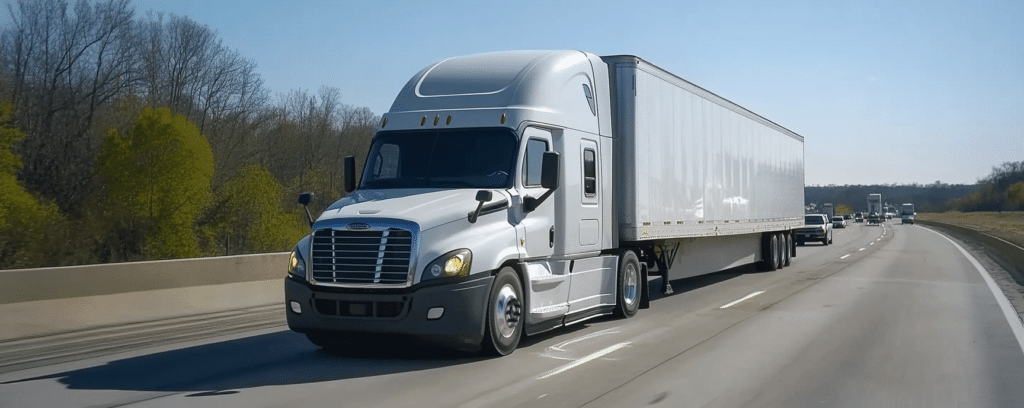The Difference Between Commercial and Non-Commercial Vehicle Insurance
Last updated Monday, November 25th, 2024

When it comes to vehicle insurance, one of the most important decisions you’ll make is choosing between a commercial vehicle insurance policy and a non-commercial vehicle insurance policy. While both types of policies provide coverage in case of accidents, they are designed for different uses, and understanding the differences between the two can help you ensure you’re properly protected.
What is the Difference Between Commercial and Non-Commercial Vehicle Insurance?
At its core, the difference between commercial and non-commercial insurance comes down to how the vehicle is used. Non-commercial vehicle insurance typically applies to vehicles used for personal purposes, such as commuting to work, running errands, or leisure driving. This type of insurance covers the vehicle for personal liability, collision, and comprehensive damage.
On the other hand, commercial vehicle insurance is intended for vehicles used for business purposes. Whether the vehicle is used to transport goods, carry equipment, or deliver services, commercial insurance policies are tailored to meet the needs of businesses. They often offer higher liability limits and specialized coverage, given the higher risk associated with business operations, such as hauling heavy cargo or operating in busy urban environments.
Types of Vehicles with Commercial Insurance
Many types of vehicles carry commercial insurance policies due to their business-related use. These include:
- Delivery vehicles (e.g., vans or trucks used for product distribution)
- Service vehicles (e.g., construction trucks, plumbing vans, or HVAC vehicles)
- Taxis, rideshare vehicles, and limousines
- Tractor-trailers and semi-trucks (for freight hauling)
- Utility trucks (such as those used by electricians or landscapers)
- Company-owned cars or trucks used by employees for business purposes
Each of these vehicles requires commercial auto insurance coverage to protect against potential liabilities associated with business activities. These policies are specifically designed to account for the increased risks involved in professional and commercial driving.
What is a Commercial Insurance Policy?
A commercial insurance policy is a type of insurance coverage specifically tailored for vehicles used in business activities. Unlike personal auto insurance, a commercial insurance policy offers more robust protection, often covering a wider array of situations that can arise from business operations.

- Higher Liability Limits: Businesses often face higher liability risks, so commercial policies typically offer higher coverage limits than personal policies.
- Specialized Coverage: Commercial policies may cover specialized business needs, such as coverage for transporting goods or tools, or protection for employees who drive company vehicles.
- Fleet Insurance: For companies with multiple vehicles, commercial vehicle insurance policies can be bundled under a single plan, streamlining coverage for an entire fleet.
- Coverage for Goods in Transit: Some commercial auto insurance coverage includes protection for the cargo being transported, which is not typically included in non-commercial policies.
Challenges for Accident Victims Involved with Commercial Vehicles
If you’re involved in an accident with a commercial vehicle, there are several challenges after an accident with a commercial vehicle that you should be aware of. While commercial vehicles tend to have higher liability coverage, the claims process can often be more complex compared to accidents involving personal vehicles. Here are some potential hurdles:
- Multiple Parties Involved: Commercial vehicles are often operated by employees, which can create additional complexity in determining liability. In many cases, both the driver and the business (the company that owns the vehicle) may be held liable. This can make the claims process for commercial vehicle accidents longer and more complicated as various parties may be involved in the investigation and settlement process.
- Liability Issues with Commercial Vehicle Accidents: Businesses often carry higher liability insurance for their vehicles, but that doesn’t always guarantee quick compensation for victims. Insurance for business vehicles may involve layers of coverage, which can delay claims or result in disputes over which policy applies. Depending on the type of accident, victims might also face challenges in determining if the vehicle was being used within the scope of the business at the time of the incident.
- Increased Legal Scrutiny: When an accident involves a commercial vehicle, there may be greater legal scrutiny. Businesses typically have legal teams or third-party insurers who will thoroughly investigate the case, which could make pursuing a commercial insurance claim more challenging for accident victims. They may also face more aggressive defense tactics as companies attempt to limit their financial exposure.
- Compensation for Injuries and Damages: Although commercial vehicle insurance policies often provide higher payout limits, there may still be limitations on how much compensation is available for personal injury or property damage, especially if multiple victims are involved or if the policy has specific exclusions.
Understanding the Commercial Insurance Claims Process

- Document the accident: Collect as much information as possible, including the commercial vehicle’s insurance details, the driver’s contact information, and any witnesses.
- Notify the insurer promptly: The business’s insurance company should be notified immediately. Delays in reporting can impact the outcome of the claim.
- Be prepared for a complex investigation: Because commercial vehicles often involve businesses with higher levels of liability, expect the investigation into the accident to be thorough and possibly more prolonged.
Understanding the distinction between commercial vehicle insurance and non-commercial vehicle insurance is vital for anyone involved in business activities that require the use of vehicles.
While commercial insurance policies offer robust coverage designed for higher-risk business uses, they also introduce complexities, especially in the event of an accident. For accident victims, navigating claims involving commercial vehicles can be challenging due to the involvement of multiple parties and potentially complex liability issues.
It’s important to be informed about commercial auto insurance coverage and the claims process for commercial vehicle accidents to ensure you are fully prepared in case of an accident.
By understanding the features and challenges of commercial vehicle insurance policies, you can better protect your business and navigate the complexities that may arise when a business vehicle is involved in an accident.










